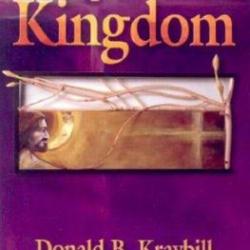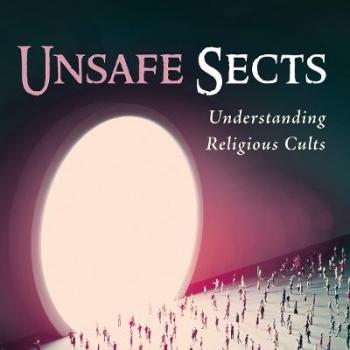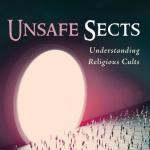
Have you ever heard the saying, “Money is the answer to all things?”
It comes from the Ecclesiastes 10:19 NIV in the Bible, which states:
“A feast is made for laughter, wine makes life merry, and money is the answer for everything.”
Alternatively, the KJV translates the verse this way:
“A feast is made for laughter, and wine maketh merry: but money answereth all things.”
At first glance, this passage seems to contradict the main message of the Bible.
After all, just a few chapters earlier, in the same book, Ecclesiastes 5:10 tells us,
“Whoever loves money never has enough;
whoever loves wealth is never satisfied with their income.
This too is meaningless.”
While later in the Bible Hebrews 13:5 tells us,
“Keep your lives free from the love of money and be content with what you have, because God has said,
‘Never will I leave you;
never will I forsake you.'”
So how can the Bible tell us that “Money is the answer to all things?”
The key to understanding this Scripture passage is to read it in context. In other words, we can’t simply consider the phrase by itself. In order to study the Bible properly, we need to first understand each individual verse within the book and time it was written.
Related: What the Bible Says About Wealth or Money
What is Ecclesiastes About?
Ecclesiastes is an Old Testament book of the Bible traditionally believed to be written by King Solomon, the third king of Israel (after Saul and David).
While Christians believe Ecclesiastes is divinely inspired, the book isn’t meant to be read as a simple, straightforward “how-to guide” right living. Rather, it contains Solomon’s (at times, very human) thoughts and reflections on life–both his own personal experiences and life in general.
Ecclesiastes chronicles King Solomon’s search for meaning. As both the richest and wisest king in the Bible, Solomon had great wealth, many wives, impressive wisdom and nearly unlimited access to all sorts of worldly pleasures.
And yet, despite all these worldly pleasures, we see that King Solomon still feels empty inside. “Everything is meaningless!” he repeated concludes, as he considers all of his pursuits.
What is the Main Theme of Ecclesiastes?
While Ecclesiastes maintains a rather depressing, existential tone throughout, we do see a glimmer of hope at the very end.
King Solomon concludes his frustrated rantings with these two verses, found in Ecclesiastes 12:13-14:
“Now all has been heard;
here is the conclusion of the matter:
Fear God and keep his commandments,
for this is the duty of all mankind.
For God will bring every deed into judgment,
including every hidden thing,
whether it is good or evil.”
After chasing wisdom, wealth and women, King Solomon ultimately concludes that seeking the Kingdom of God is the only thing that truly satisfies man’s search for meaning, significance and fulfillment.
Unfortunately, we see the same thing happen today. Many search for happiness, meaning and fulfillment through fame, fortune, beauty, popularity, comfort, entertainment, or substance abuse.
And even “good” pursuits, like becoming a missionary, starting a Christian blog, or sharing the gospel can become “worthless” pursuits if one for the wrong reason or in the wrong way.
When we read Ecclesiastes, we’re reminded to pursue righteousness through a real relationship with God, rather than simply chasing fleeting pleasures (or obligations) that don’t truly satisfy.
Now that we understand the context of Ecclesiastes, let’s look at King Solomon’s claim, “money is the answer to all things” in Ecclesiastes 10:19.
Related: 5 Ways to Become a Better Steward of God’s Money
Why Does King Solomon Say, “Money is the Answer to All Things?”
While Biblical scholars disagree on the exact meaning of this phrase, one explanation is that King Solomon is lamenting how unfair life is. In other words, he may be using the phrase with a tone of sarcasm or complaint.
We see this theme a few verses earlier in the same chapter (vv. 5-9), where Solomon states,
“There is an evil I have seen under the sun,
the sort of error that arises from a ruler:
Fools are put in many high positions,
while the rich occupy the low ones.
I have seen slaves on horseback,
while princes go on foot like slaves.
Whoever digs a pit may fall into it;
whoever breaks through a wall may be bitten by a snake.
Whoever quarries stones may be injured by them;
whoever splits logs may be endangered by them.”
This explanation fits in well with the theme of the book. Like so many other things Solomon has tried to pursue, chasing money is meaningless because life’s not fair. Those who work hard, do the right thing, or have special skills or talents aren’t always rewarded.
What’s the point of working hard or doing the right thing when it offers no real benefit?
We see this theme in our modern culture as well. Those with money get ahead, whether they deserve it or not. It isn’t fair, but it’s life.
Related: Follow the Money: Politics, Business & Abortion
While the exact meaning of the phrase “money is the answer to all things” remains a bit unclear, we can rest assured that King Solomon is NOT encouraging Christians to chase money above all else. That would go against the theme of the entire book.
Rather, King Solomon is simply expressing his frustration at the meaningless of chasing after worldly pursuits, before he ultimately concludes that putting God first is the best and only way to find true fulfillment in this life.


















